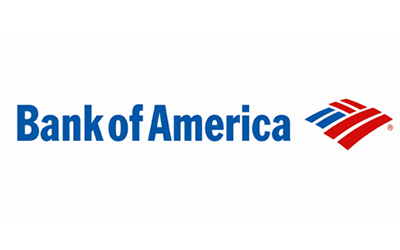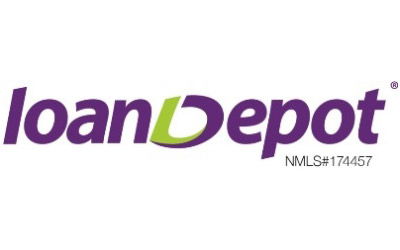Refinancing your mortgage can be a smart financial move—if you do it right. Homeowners who refinance at the right time can save tens of thousands of dollars over the life of their loan. A lower interest rate alone could mean paying significantly less each month.
But here’s the catch: Choosing the wrong refinance lender can cost you big time. Hidden fees, high closing costs, and unfavorable terms can wipe out potential savings.
That’s why shopping around for the right lender is just as important as deciding to refinance in the first place.
8 Best Mortgage Refinance Lenders of 2025
We’ve done the research for you—here’s a list of the best mortgage refinance lenders offering competitive rates, low fees, and excellent customer service.
1. Rocket Mortgage
Rocket Mortgage, part of Quicken Loans, is a leading choice for homeowners seeking a fast, fully digital refinance experience.
2. Better
Better Mortgage offers a seamless, fully digital mortgage refinance experience, eliminating origination fees and commissions to provide cost-effective options for homeowners.
3. Navy Federal Credit Union
Navy Federal Credit Union (NFCU) offers a range of mortgage refinance options tailored to its members, including active-duty military personnel, veterans, Department of Defense employees, and their families. They provide both fixed and adjustable-rate mortgages, as well as cash-out refinancing options.
4. Bank of America
Bank of America offers a comprehensive suite of mortgage refinance options, catering to a wide range of borrower needs.
5. SoFi
SoFi provides a streamlined, fully digital mortgage refinance experience, appealing to tech-savvy homeowners seeking efficiency and convenience.
6. Chase
Chase Bank offers a comprehensive range of mortgage refinance options, accommodating various borrower needs with both digital tools and in-person support.
7. New American Funding
New American Funding is a direct mortgage lender offering a wide array of refinancing options, catering to diverse borrower needs.
8. loanDepot
loanDepot is a direct mortgage lender offering a variety of refinancing options, designed to meet diverse borrower needs. Their online platform streamlines the refinancing process, making it accessible and efficient.

How Mortgage Refinancing Works
Refinancing a mortgage follows a similar process to getting a new home loan. The biggest difference is that you’re replacing your current mortgage with a new one—ideally with better terms. You don’t have to stick with your current lender, so it’s worth shopping around to compare rates, fees, and loan options.
Once you find the right lender, you’ll complete an application and submit documents like income statements, tax returns, and details about your home. A loan officer and underwriter will review your information to determine if you qualify for the new loan.
Mortgage Refinance Requirements
Lenders look at three main factors when deciding whether to approve your refinance:
- Credit score: Most lenders require a minimum score of 620, but some government-backed programs allow lower scores.
- Debt-to-income (DTI) ratio: Your total monthly debt, including your new mortgage payment, should typically be no more than 43% of your income.
- Loan-to-value (LTV) ratio: Most lenders prefer that you have at least 20% equity in your home, though some programs allow higher LTVs.
An appraisal is usually required to confirm your home’s market value. While you don’t need to make major upgrades beforehand, a clean and well-maintained home can help make a positive impression.
Once your refinance is approved, you’ll schedule a closing date. A notary will guide you through signing the final documents, and then your new loan terms will take effect. If you’re doing a cash-out refinance, the funds will typically be deposited into your bank account within a few days.
How to Choose a Mortgage Refinance Lender
Choosing the right lender is just as important as deciding to refinance in the first place. The right lender can save you money, time, and frustration, while the wrong one can lead to higher costs and a stressful process. Here’s what to focus on when making your decision:
Loan Type
Not all lenders offer the same refinance options. Before applying, make sure the lender provides the type of refinance loan you need. Common options include:
- Rate-and-term refinance – Lower your interest rate or change your loan term.
- Cash-out refinance – Tap into your home equity for extra cash.
- FHA, VA, or USDA refinance – Government-backed programs with lower credit score requirements.
- Jumbo loan refinance – For high-value properties exceeding conventional loan limits.
Rates & Fees
A lower interest rate can save you thousands over time, but lenders also charge fees that impact the total cost of refinancing. Compare:
- Interest rates and APR – Some lenders offer lower rates but higher fees, so focus on the APR for the full cost.
- Origination fees – Some lenders waive these, while others charge 1% or more of the loan amount.
- Discount points – You may have the option to pay upfront to lower your rate.
Customer Service
Refinancing can be a smooth or frustrating experience depending on the lender’s customer support. Consider:
- Online vs. in-person service – Some lenders offer fully digital refinancing, while others have physical branches.
- Response times – Fast approvals and quick responses can make a big difference.
- Customer reviews – Look at real customer feedback to spot patterns of good or bad service.
Closing Costs
Refinancing isn’t free—closing costs typically range from 2% to 6% of the loan amount. Some lenders let you:
- Roll closing costs into the loan to reduce upfront expenses.
- Choose a no-closing-cost refinance, which means a slightly higher interest rate in exchange for lower fees.
Taking the time to compare lenders based on these factors will help you find the best refinance option for your financial goals.
When to Refinance Your Mortgage
Refinancing can be a great financial move if it helps you save money or achieve specific goals. Consider refinancing if:
- Interest rates have dropped. A lower rate can reduce your monthly payment and total interest paid over time.
- You need to lower your monthly payment. Extending your loan term or getting a better rate can free up cash in your budget.
- You want to cash out home equity. A cash-out refinance allows you to borrow against your home’s value for home improvements, debt consolidation, or other expenses.
- You want to switch from an adjustable-rate mortgage (ARM) to a fixed-rate loan. If your ARM is about to reset to a higher rate, locking in a fixed rate can give you long-term stability.
When Not to Refinance
Refinancing isn’t always the right move. It may not make sense if:
- Your credit score has dropped. A lower score can mean higher interest rates, reducing the benefits of refinancing.
- You won’t break even on closing costs. If you plan to sell your home soon, the savings may not be enough to offset the upfront costs.
- You’re close to paying off your mortgage. Restarting your loan term could mean paying more in interest over time.
Before refinancing, run the numbers to ensure it aligns with your long-term financial goals.
Final Thoughts
Refinancing isn’t just about getting a lower rate—it’s about making your mortgage work better for you. Whether you’re looking to lower your monthly payment, shorten your loan term, or tap into home equity, the right lender and loan terms matter.
Before refinancing, calculate your break-even point to make sure the savings outweigh the costs. Compare multiple lenders, negotiate fees, and read the fine print. A little effort upfront can lead to big savings over time.
If refinancing fits your goals, take the next step and explore your options. The right loan could put you in a stronger financial position.
Frequently Asked Questions
Can I refinance my mortgage with bad credit?
Yes, but your options may be more limited. Some lenders specialize in refinancing for borrowers with lower credit scores. FHA and VA refinance programs allow scores as low as 580, while some non-traditional lenders offer refinancing for even lower scores, though with higher interest rates.
If your credit score is below 620, consider lenders like New American Funding or loanDepot, which have options for borrowers with less-than-perfect credit.
How much does it cost to refinance a mortgage?
Refinancing costs typically range from 2% to 6% of the loan amount. Here’s an example for a $250,000 refinance loan:
- Origination fee: $1,000 – $2,500
- Appraisal fee: $300 – $600
- Title insurance: $1,000 – $2,000
- Recording fees: $100 – $250
- Other closing costs: $500 – $1,500
Some lenders allow you to roll these costs into your loan or offer no-closing-cost refinancing, which raises your interest rate slightly in exchange for lower upfront fees.
How soon can I refinance after buying a home?
Most lenders require a waiting period of six months after your original loan closes before you can refinance. However, some government-backed programs, like the VA and FHA streamline refinance options, allow refinancing sooner under certain conditions. If you’re doing a cash-out refinance, expect to wait at least 12 months and have at least 20% equity in your home.
Will refinancing reset my loan term?
Not necessarily. While many homeowners refinance into a new 30-year loan, most lenders also offer 10-, 15-, or 20-year terms. Some lenders, like Better Mortgage and Rocket Mortgage, allow you to customize your loan term to avoid adding extra years to your repayment schedule.
Can I refinance if my home value has dropped?
It depends on your loan type. Conventional loans typically require at least 20% equity, but government-backed refinance programs, like FHA Streamline Refinance or VA IRRRL (Interest Rate Reduction Refinance Loan), allow refinancing even if your home’s value has decreased.
Is it possible to refinance if I’m self-employed?
Yes, but expect a more thorough income verification process. Most lenders require two years of tax returns, bank statements, and profit-and-loss statements. Lenders like New American Funding and Chase are known for offering flexible options for self-employed borrowers.
Will refinancing affect my credit score?
Yes, but the impact is usually small. A hard inquiry from the lender can lower your score by a few points, but this is temporary. If you apply with multiple lenders within a 45-day window, credit bureaus count it as a single inquiry. Over time, making on-time payments on your new loan can help improve your credit score.











